
Project News
STRAIGHTSOL Newsletter - Issue 6 available (pdf, 688Kb)
[More]
See our animations
[More]
New deliverables available
[More]
Summary results booklet available
[More]
STRAIGHTSOL evaluation framework resources available
[More]
Open ENLoCC event videos available
[More]
STRAIGHTSOL Newsletter - Issue 5 available (pdf, 193Kb)
[More]
Kuehne-Nagel's video: Rail tracking and warehouse management (6:50 mins)
[More]
Demonstration poster presentations available to download
[More]
Thursday 7th March 2013 - Barcelona
STRAIGHTSOL Workshop
DHL's Urban Consolidation Centre for L'Hospitalet de Llobregat
Presentations
- Introduction to STRAIGHTSOL project, Jardar Andersen, (Straightsol project co-ordinator, TØI)
- Preparation of the Demonstration, Miquel Estrada (CENIT)
- Presentation of L'Hospitalet de Llobregat city, objectives and directives as a municipality, Blanca Atienza (L'Hospitalet City Council)
- Performance of the pilot test: Terminal Operations and preliminary findings, Francisco Carrión (Responsable de Operaciones ZAL Carrefour, DHL Supply Chain, Spain)
- Small retailer perspective, Mayte Campos Cordoba (Presidenta del Grup de Botigues Centre-Sant Josep)
- The role of providers for improving the efficiency of urban distribution, Antonio Beneroso (AECOC)
Workshop report - Introduction
The workshop on DHL's Urban Consolidation Centre for L'Hospitalet de Llobregat (Spain) was jointly organized by the three partners involved in the demonstration: the centre for innovation in transport (CENIT), the city council of L'Hospitalet de Llobregat and DHL Supply Chain Spain (DHL SC). The workshop aimed to present the demonstration to those interested in or affected by urban distribution inefficiencies. This included retailers, transport and logistics providers, municipality and regional planners, policy makers and academia. The workshop was organized within the framework of the STRAIGHTSOL FP7 research project and took place at Centre Cultural Tecla Sala of L'Hospitalet de Llobregat, on Thursday, March 7, 2013.
Description of STRAIGHTSOL and DHL L'Hospitalet Demonstration
The City Mayor of L'Hospitalet welcomed the audience and started the workshop stating the interest of the City Council in the STRAIGHTSOL project. With this project, the city council tries to rationalize urban distribution, a phenomena with great economic impact which also affects citizens, shopkeepers, transport companies and authorities. And it causes emissions and noise nuisance, traffic congestion and problems concerning public space and services. Also, the city Mayor showed gratitude to the Europe Union to invest in innovating projects now that the economic crisis is paralyzing.
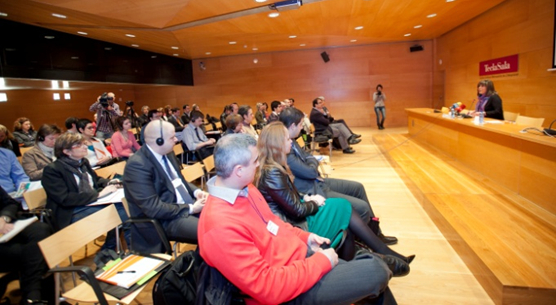
Figure 1: The city Mayor Núria Marín with the audience
Francesc Robusté, the director of CENIT, mentioned the importance of the type of unions that the Spanish partners of STRAIGHTSOL are forming. The partnership of a company, a city council and an innovation centre form a triangle, where users are in the centre affected by their actions and decisions. The results of these projects can make real positive impacts in urban city's environments and quality of life.
Miquel Estrada (Project Manager of CENIT) presented each of the participants of the following two sessions dedicated to the demonstration and some related experiences. Before the beginning of the specific presentations, the Straightsol project co-ordinator, Jardar Andersen (TOI) described the project's aims and activities, and gave a brief presentation of the other six demonstrations in the Straightsol project.
The first speaker, Isabel Ferrando, introduced DHL Supply Chain and their innovation principles, based on the projected future of growing urban populations and the importance of economy in the urban population. City logistics impacts in a wide variety of areas including economy, urbanization, traffic and environment. One of the basics for improving is the consolidation out of the city centre, especially by the Urban Freight Centres (UFCs). Then, the business case of Vitoria Gasteiz (European green capital 2012) was presented. The common problems of urban deliveries in a historical environment were solved with a set of miniblocks along the city served by one or several proximity delivery areas.
Then, Miquel Estrada (CENIT) introduced the demonstration and the activities for its preparation. L'Hospitalet de Llobregat is a densely populated area with 260,000 citizens in an area of only 12.5km2. Its urban distribution problems were defined using several transport and environmental indicators. The solution was defined jointly by the Spanish partners, proposing an urban consolidation centre giving service to the commercial stores in the central neighbourhoods of L'Hospitalet de Llobregat. During the first trimester of 2012, a retailer survey was conducted to obtain their current way of working and their performance. The results provided information regarding several aspects: general questions about the features of the store, types of shipment reception and features of the shipment: frequency, dimensions, volume/weight, and also other issues or suggestions. Several interesting facts were obtained from the results of the survey:
- The stores of l'Hospitalet are small (with a median of 70m2 of selling area and 4m2 of storage area) and a median of one worker, with exception of restaurants and foods store with a median of two workers.
- The main types of stores are bars, cafeteria and restaurants, food shops (green groceries, supermarkets and bakeries), personal consumption stores or services like clothes shops, shoe shops, hairdresser, pharmacies or repair shops.
- Nearly 85% of the stores receive shipments from transport providers, approximately 27% use their own means of transport and only 10% generate loads to clients or to return.
- Regarding transport providers, retailers stated they have a lot and variety of transport companies serving their businesses. Half of the stores have more than 5 different providers, generating frequent shipments.
- Shipment features are described, grouped by type of stores. Health stores receive 2 shipments daily, food and restaurants have between 7-11 shipments a week, and personal consumption between 1-3 shipments per week. The volume is small, 40% of the deliveries are smaller than 1m3 and 80% smaller than 2m3.
After reviewing the critical features of past experiences of UCCs, several actions have been taken to adapt the recommendations. Instead of imposing coercive measures, there was dialogue with stakeholders. Another critical issue was the lack of demand consolidation, where some experts pointed the need of having a big demand attractor. For that reason, CENIT and DHL Supply Chain have developed a 'Hybrid Consolidation Centre': the distribution to small retailers of the city centre is combined with a big demand attractor (e.g. hospital, university, city mall,...). (See Figure 2). In L'Hospitalet de Llobregat, the big demand attractor will be a city mall (Gran Via 2). Regarding financial issues, some models have been explored to guarantee the viability of the system.
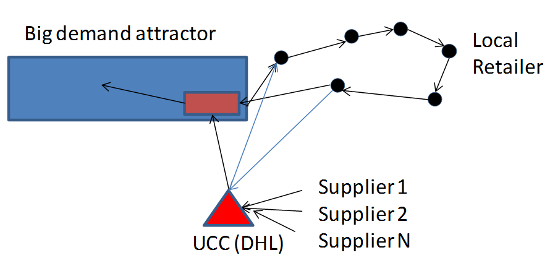
Figure 2: Hybrid concept of UCC
Enrolment of stores has been the most difficult and time consuming challenge. The procedure was the following; first, potential stores were selected, excluding perishable, big packages or stores with their own logistics chain (e.g. newsagent, pharmacy, ...). Then, two meetings open to several stores were proposed to engage stores to the initiative. As store managers were busy, individual meetings were planned with approximately 70 retailers. To involve the city mall, two actions were taken: dialogue with a hypermarket company located in the city mall and also with small stores located in the city mall. However, at the time of the workshop no final agreements were reached. The incentives or motivation for participation included free advertising of the shop in the local media, all participating retailers being identified with a sticker showing environmental responsibility; and also, social responsibility was used to promote the initiative, showing that participation in the pilot helped to improve the city environment. Store managers were mainly reluctant to participate: most of them could see the benefits at the long term horizon. However, at first it represents for them a small effort in shipment changes that is not part of their business activity, efforts that were not compensated by the motivation and benefits.
Finally, nine city centre retailers signed the collaboration agreement (three others had also signed up but subsequently went out of business): two clothes shops, a sports shop, a haberdashery, lingerie shop, bookshop, electrical shop centre, party articles, and kitchenware store. After signing the agreement, retailers should change their delivery address to the UCC. DHL SC Spain is serving these stores from the UCC (See Figure 3), located at 6km from the centre of L'Hospitalet de Llobregat.
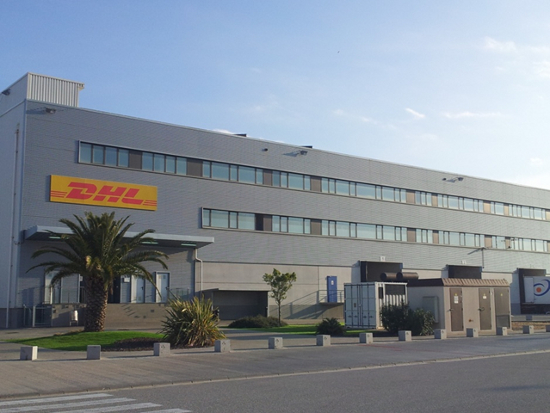
Figure 3: DHL SC Spain at ZAL (Zona de Actividades Logisticas) in El Prat de Llobregat
As conclusions of the preparation activity, four issues were identified by CENIT:
- The economic crisis has deeply affected the number of stores, and the stores’ business activity
- The leadership of a public entity is essential.
- We truly believe that more savings can be obtained from a collection of small retailers, as they generate a lot of small and frequent shipments.
- But small retailers are owned and run for one or two people that normally cover a lot of tasks, they do not have time or interest in these side problems.
As the last presentation of the first session, Blanca Atienza, a technician from public space, urban planning and sustainability of the city council, described the action plan of the municipality 2012-2015. The action plan contains more than 450 measures organized in five main orientations: develop and generate economic activities, consolidate services for welfare state, improve security and social harmony, improve sustainability and protect the right to live in a home, finally, make the administration more efficient. To achieve these objectives with citizen participation, the City Council has developed an initiative called “L'H On, el futur per endavant” where citizens and experts ideas are collected to define concrete future actions. The demonstration being developed in L'Hospitalet fits perfectly within the action plan of the city council.
Experiences and different points of view
The second session began with a description of the operations that DHL SC Spain will perform at the consolidation centre and of the performance of the demonstration during the first active period (two weeks), presented by Francisco Carrión, responsible for operations at ZAL Carrefour (DHL SC Spain). The location of the centre was chosen for its flexibility in accommodating the final number of stores, optimization of existing resources, and the proximity to the delivery area (6km). The reception, preparation and loading of the shipments will be done with a usual procedure, checking that the shipments match the delivery note. To assist the demonstration, Masternaut software will be used. The software provides: location and registration of delivery routes, PDA format to facilitate delivery and control, generation of an electronic delivery note to avoid unnecessary paper. At the end, some preliminary data is collected about received shipments from DHL customers (DHL is incorporating more volume from its customers in Catalonia into the UCC simulation in order to compensate low volumes received and expected from municipality stores).
Antonio Beneroso, representative of the Logistics and Transportation Committee of the Spanish Association of producers and distributors offered their point of view. The association tries to improve the efficiency of the relationships between producers and distributors. In particular, transports and logistics committee is responsible for fixing guidelines and recommendations. Aware of the cost that transport represents in the mass consumer sector (around 20% of the goods costs in urban areas), they are promoting several measures, especially night deliveries, loading/unloading control and intermodality. From their point of view several challenges should be addressed to adapt the necessities of the mass consumer sector and restaurant industry to a UCC.
From the Merchant's association (70 stores approx.), the president Maite Campos presented the retailer's point of view. The retailers of L'Hospitalet are mainly family businesses, with small selling areas and with customers from the neighborhood. There is a high heterogeneity in the supply chain, and usually retailer’s managers do not know where or how the shipments arrive at the store. This is normal because this activity is out of the scope of their business responsibilities. Moreover, currently the economic crisis has notably affected commercial activities, and big commercial malls and the proximity to Barcelona are really competitive. Even though the benefits of the consolidation centre are clear in a global point of view, the retailers are not willing to pay additional costs or to accept delays in the shipments. It is very important that the initiative is led by the city council with the support of the retailers.
Questions and discussion
Several questions were raised at the end of the presentations that led to some discussion:
- Financial viability is essential once DHL and EU funds are over. The demonstration will be used to faithfully quantify the operation and implementation costs. In this way, the business model for the future will have base data from which adjustments can be made.
- Data collection is very important, especially the comparison of load factors between the demonstration and the current situation, with expected gains for the solution proposed. Estimation of the potential impact of using electric vehicles will also be useful and the demonstration will include a period of two weeks using an electric van to perform the deliveries.
- Insurances when a good dispatched is taken under the custody of a third party may be a problem in some countries.
Showcasing the pedestrian area of L’Hospitalet and UCC
A small tour through the pedestrian and commercial area gave an idea of the real implementation scenario. The workshop participants could see the emissions station located in one of the squares next to the city council building and also one of the stores taking part in the demonstration (See Figure 4).
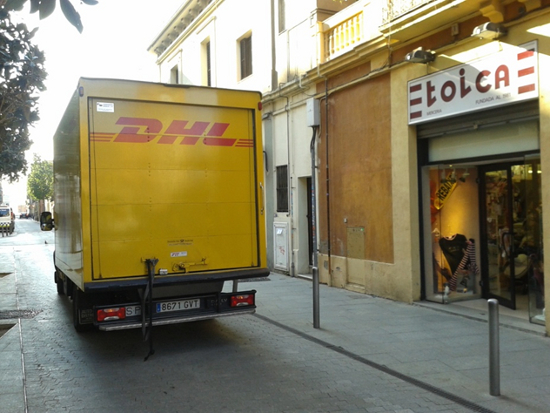
Figure 4: Visited store participating in the demonstration
Then, the visit continued at UCC at ZAL (El Prat de Llobregat), where shipments are consolidated. The facilities at ZAL are owned by Carrefour but operated by DHL SC Spain. In these facilities, DHL SC Spain has a dedicated area to the consolidation operations for the demonstration. It is an area with control access and security camera to guarantee security and efficiency of the demonstration.
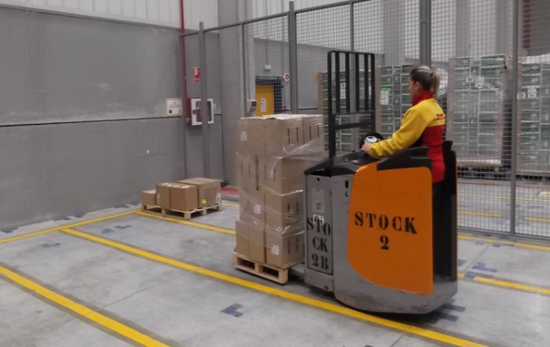
Figure 5: Dedicated area to the demonstration deliveries
During two weeks, the distribution will be tested with an electric vehicle (Vito E-Cell - Mercedes Benz, 850kg load capacity and maximum mileage of 80km/day), which was exhibited. Before the visit, Santiago Blasco, Responsable Nuevos Productos y Servicios Retail (DHL SC Spain), described the activities of DHL SC at ZAL facilities.
DHL Supply Chain Spain serves from the facilities at ZAL the hyper and supermarkets of Carrefour of the Catalonia area, covering food/non food/electric but without fresh and frozen products. The service is 65% in tight flow, and the remaining 35% of the volume is stock. In order to work at tight flow the facilities have sorter systems with high levels of productivity operation which is combined with stock and cross-docking.
Discussion and future outlook
The involvement of stores is a critical issue; it is difficult to analyze the changes during the pilot test. For that reason several actions are suggested to improve the participation of more stores. The inclusion of other possible customers of the UCC like hospitals, administration centres or the university should be considered or maybe the participation of a big supermarket located in the city mall. Also, more neighbourhoods can be involved. Apart from that, now that the pilot is up and running it might be easier to convince small stores that is a possible solution. The difficulties in involving the stores are mainly because they are not directly affected by the problems that are solved with the UCC. They are not aware of the congestion, or concerned about illegal parking or visual nuisance. However, this affects their commercial activity. Apart from that, to expect actions from the citizenship due to social responsibility there is a need for an intensive consciousness-raising from the local authorities.

Events
29/08/2014
Project Final Review meeting, Brussels
12/06/2014
Smart Urban Freight Conference hosted by NewRail, Newcastle University, including contributions from Straightsol project
[Conference webpage]
13/06/2014
Evaluation Framework Training Sessions, Newcastle University
[More]
02/04/2014
Open ENLoCC event, Brussels, including presentation of Colruyt and Delhaize night-time deliveries demonstration
[More]
24/09/2013
Demonstration Results Workshop/Exhibition in Amsterdam
[More]
02/07/2013
TNT Express demonstration workshop in Brussels
[More]
23/04/2013
Oxfam demonstration workshop in Batley, near Leeds, UK
[More]
07/03/2013
DHL Supply Chain demonstration workshop in L'Hospitalet de Llobregat/Barcelona, Spain
[More]
31/10/2012
Oslo: Demonstration workshop
Smart Urban Transport - Standardising information in retail supply chain management and last-mile distribution
[More]
13/09/2012
Thessaloniki: Demonstration workshop
"Intelligent" systems for the interconnection of urban-interurban freight transport
[More]
03/07/2012
Brussels: STRAIGHTSOL project workshop on Smart Urban Freight Solutions
(in collaboration with the Smartfusion partnership)
[More]